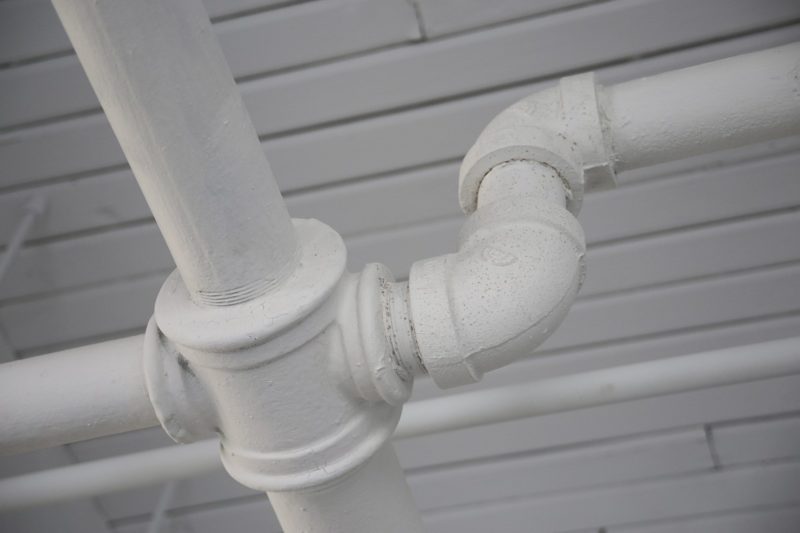Are you thinking about what causes too much pressure in hot water heater? There’s no need to think more about it because you’ve landed in the right place. We’re here to help you out. Excessive pressure builds up in a water heater whenever the supply of hot water is restricted, or the water temperature has become too low.
Due to the obvious pull of gravity and the lower air pressure in your house, pressure increases whenever the temperature goes up due to warmer temperatures outside or low flow. Fortunately, there are specific steps you may take to identify and resolve excessive water pressure. There’s much more to learn, so let’s have a deep look at it!

What Causes Too Much Pressure In My Hot Water Heater?
Do you know what causes too much pressure in hot water heater? The municipal water system is the most prevalent reason for high water pressure. If you reside in a region having many mountains or high-rise buildings, the water must be pumped at greater pressure to achieve all of your users. Local water companies frequently pump water at pressures of 100 psi or higher.
Because hydrants require far greater pressure than dwellings, being near one might enable the water main leading into your house to operate at a higher pressure. It is indeed conceivable that your water heater’s expansion tank is broken. The source of excess pressure in the water heater is frequently something beyond your control at the end of the day. Just one point you have to do is locate it and use steps to limit the pressure when the water flows from the main water supply inside your house.
So, how can you know whether you’re dealing with excessive water pressure?
How To Know If There’s Too Much Pressure In Hot Water Heater
An accurate pressure gauge that we’ll discuss later will tell you much about the water pressure in your house. On the other hand, your home will provide you with signs and cues that it’s time to acquire an appropriate assessment.
#1. Check the water taps
High water pressure may be detected in your house by looking at the faucets. Small parts in faucets, such as aerators and washers, will rapidly break out if they are regularly subjected to high water pressure. The main item to look for is leaking faucets, particularly those that leak if another object, such as your showerhead, is turned on. When you switch on a tap for the first time, you may see it bursting or spitting. Alternatively, you may observe extra water gushing out whenever your tap is entirely switched on than the usual continuous flow.
#2. Inspect the water pipes
Have your pipes ever made a “popping” noise? Water hammer is a symptom of low water pressure in your water heater. Whenever a rapid, strong water flow comes to a halt, it is called a water hammer. Once you get a lot of water pressure, shut off a tap quickly; it’s like a freight train crashing into your pipes. Water may be such a powerful force of nature that we forget about it sometimes. You may also be interested to know about time to replace your pipes.
#3. Keep an eye on your appliances
Appliance on your water heater may alert you to pressure issues in various methods. Leaks are the more apparent item to keep an eye out for. If exposed to high water pressures for an extended time, washers and dryers, heating systems, and automated dishwashers all can begin to leak. They may or may not leak in any way. They simply deteriorate over time and require replacement significantly earlier than they should.
The damage caused by excessive water pressure may be why you’ve only had considerably less time than you expected with an item. Going around the apartment switching on taps and hearing for water pounding is an excellent beginning, but you’ll have some equipment if you wish to understand what’s wrong with your plumbing.
How You Can Check The Water Pressure
By using the following devices, you can check the water pressure.
#1. Pressure gauge
This simple gadget is available at home improvement shops. It features a connector that looks like the tip of a garden hose and connects to your taps in almost the same sense. Locate the tap nearest to the drainage system that may be in the cellar or on the exterior of your home. Check that all of the water faucets and devices are switched off. Turn the water on and connect the pressure gauge to a tap. Make sure to glimpse at the gauge after a few moments. Your pressure of water should be approximately 40 – 60 psi.
#2. Pressure reduction valve
a pressure regulator called a pressure reduction valve is a device attached to the piping system that lowers the flow of water entering your house. A pressure reduction valve may not be present in old buildings, but installing one might quickly cure your issue if you have excessive water pressure.
It’s A Wrap!
We hope you’ve figured out what causes too much pressure in hot water heater. We’ve gone through everything in great detail up to this point. To fully comprehend all of this, please read the article carefully. We’ve also included several ways for measuring water pressure. Click on these links to read related articles; know how to start hot water heater in RV and how to check a hot water heater. Thank you for sticking around till the finish, friends!
